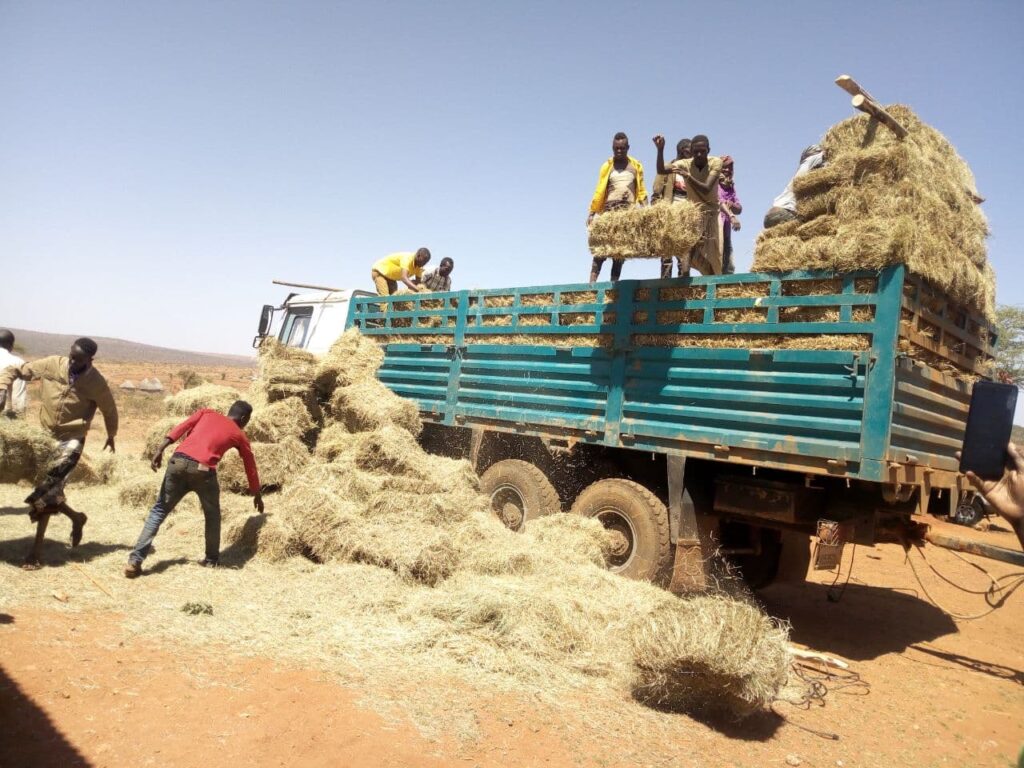ADF STAFF
The Russian invasion of Ukraine has set off a cascade of food shortages across many parts of Africa. The war is compounding existing problems caused by a drought and food prices that were already on the rise before the war disrupted exports.
Russia and Ukraine are major exporters of wheat and maize to North and East Africa. Disruptions caused by the war have reduced supplies of imported grain, putting pressure on bakeries and other food manufacturers while driving up the price of staples such as bread.
“One-third of the cereal supply of East Africa comes from those two countries, and Egypt is badly affected. So is Algeria and Morocco, Somalia and several other countries. So, if we don’t manage this very quickly, it will actually destabilize the continent,” Africa Development Bank President Akinwumi Adesina told Al Jazeera.
In Tunisia, shortages induced panic buying in grocery stores ahead of the start of Ramadan. Baker Slim Talbi told AFP in March that he was already paying three times the normal price for flour before the impacts of the Russian invasion of Ukraine took effect.
More than a dozen African countries rely on Russia or Ukraine for their wheat imports. Levels vary from 10% in Zambia (from Ukraine) to 100% in Eritrea (evenly split between Ukraine and Russia), according to the Food and Agricultural Organization of the United Nations.
Africa does $4.5 billion in business with Ukraine, the great majority of that in grain imports. The same is true for $4 billion in trade with Russia. Some of those imports include fertilizer, which is also rising sharply in price, further straining farmers’ ability to produce food.
Africa is not alone — commodity prices are rising around the world. Wheat has gone up 64% in recent months and is at the same levels that provoked the 2008 global food crisis, Adesina said.
In response to increasing competition for food resources, Cameroon at the end of 2021 banned the export of maize and other grains along with vegetable oils to protect its food supply. Burkina Faso banned the export of millet, sorghum, and maize both as grain and as flour.
South Africa, which reported higher-than-normal production of maize and wheat this year, can use that surplus to cushion itself against the loss of imports from Ukraine and Russia, according to Oxford Economics. Despite that, food prices in the country are expected to rise nearly 6% this year. Russia is a major source of fertilizer for South Africa’s agricultural sector.
The rising cost of dietary staples mirrors a growing strain on the agricultural sector in East Africa, where years of drought have withered grazing land for livestock.
Ethiopian farmer Deboh Gayo lost nine of her 15 cattle to the drought and had to sell many of her family’s goats.
“Whenever I think of our future ahead, I get worried,” Gayo told non-governmental organization Farm Africa. “I don’t know what to do. The situation is getting worse.”
In Somalia, the drought claimed the lives of two of Ruqiya Hussein Ahmed’s children. The Russian invasion of Ukraine made it even harder for her to support her remaining children. Eventually, she and her family had no choice but to leave her home in search of better conditions.
Ahmed and her children are among the 13 million people in the Horn of Africa facing hunger and malnutrition because of severe shortages of food and water, according to the United Nations.
In the short term, emergency distribution of food is needed for people and animals alike, according to Farm Africa. In the long term, food security in East Africa depends on farmers being able to increase productivity to reduce reliance on imported food, the NGO said in a statement.
Adesina said the Africa Development Bank is putting together a strategy to help African farmers produce an extra 30 million metric tons of wheat, rice and soybeans as a hedge against the kind of problems the continent is now facing. The plan has the support of the International Monetary Fund.
Efforts to improve farming practices in Ethiopia, for example, are increasing wheat harvests there, he said.
“We are going to be really ramping up our efforts to mobilize that money,” Adesina said. “If there was ever a time that we needed to really drastically raise food production in Africa, for Africa’s food security and to mitigate the impact of this food crisis arising from this war, it is now.”

